Negotiations
| Newer Posts | Older Posts |
How Far Above The Asking Price Are You Willing To Go? |
|
 In some long forgotten distance past era I might have asked a buyer if they thought they were willing to] pay the asking price for a house that was recently listed for sale. Now, the question is a bit different. It is more often a question of how far above the asking price you are willing to go when you make an offer. When you are competing with so many other home buyers who are also planning to make an offer it quickly becomes a question of which buyer is willing to pay the highest price for a particular property. Sometimes that top price is guided by past sales prices but more often than not in the current market buyers are deciding that they are willing to pay more than other recent buyers have paid for similar properties. Escalation clauses are being used in many if not most offers these days to allow a buyer to offer one price but commit to increasing their offer to exceed the offering price from other buyers. It is okay to get excited about a list price of a new listing but keep in mind that these days you probably won't be paying that price, you will be paying some amount above that price. Thus, start thinking early about how far above the asking price you are willing to go. | |
Finding Gray Areas In Inspection and Appraisal Contingencies |
|
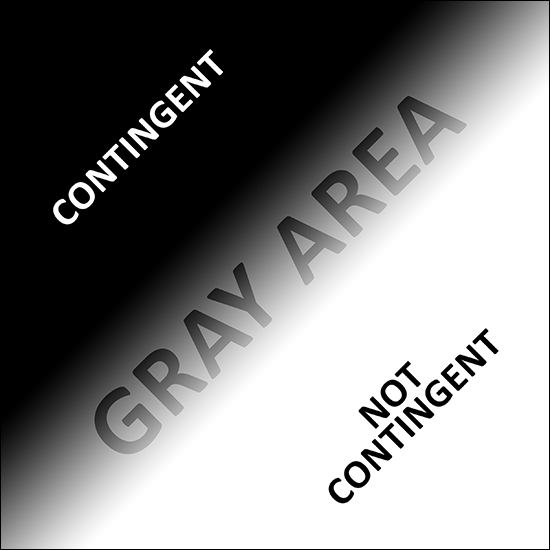 It's a crazy market right now. There are definitely many more buyers than sellers in most segments of our local housing market. As such, buyers are having to make difficult decisions about what contingencies to include in their offers. The two prime examples are the INSPECTION and APPRAISAL contingencies. INSPECTION...
APPRAISAL...
But maybe there can be a gray area between having and not having these contingencies in your offer? INSPECTION... Perhaps your offer could be contingent on a home inspection, but...
APPRAISAL... Perhaps your offer of $300K could be contingent on an appraisal, but...
These are some basic examples of how to aim for that gray area between overtly contingent and not at all contingent. If you are buying in this market, have these conversations earlier than later to know what levels of contingencies you are comfortable having in your offer to buy any particular property. | |
Should You Waive An Inspection Contingency? |
|
 Many buyers in many price ranges are finding it difficult to compete against SOOO many other buyers making offers on a house. They are left asking themselves how to make their offer stand out amidst multiple other competitive offers. As a buyer in this crazy market... Should You Wave An Inspection Contingency? As you might expect, it depends. Here are a variety of perspectives to consider... NO. Don't waive the inspection contingency. There could be serious issues with the house -- a failing foundation, mold in the crawlspace, a leaky roof, broken roof trusses, unsafe electrical wiring, and more! An inspection can help root out most issues with a property to give you a full and thorough understanding of the condition of the property you are purchasing. YES. Waive the inspection contingency. You'll end up spending money on your home over the first few years for maintenance or upgrades anyhow, and even if there are some surprises, you can just lump them into that cost of homeownership. YES. Waive the inspection contingency. The house is only __ years sold. What could possibly be wrong with it at this point? YES. Waive the inspection contingency. How else will I actually secure a contract on a house in such a competitive market!? In the end, I suppose it depends both on the house and you... The House: How old is it? Has it been well maintained? How old are the major systems of the house? Were you able to view the basement or crawlspace during a showing? Were there any red flags? You: Are you relatively handy with home repairs or are you overwhelmed by even the slightest need for improvements? Are you comfortable with risk? How badly do you want to buy a house. I am still recommending that my buyer clients include an inspection contingency in their offers but I am being clear about the downside of doing that as it relates to competing with other offers -- and some of my buyer clients are deciding to waive the inspection contingency after all. | |
Comparing Home Pricing Strategies |
|
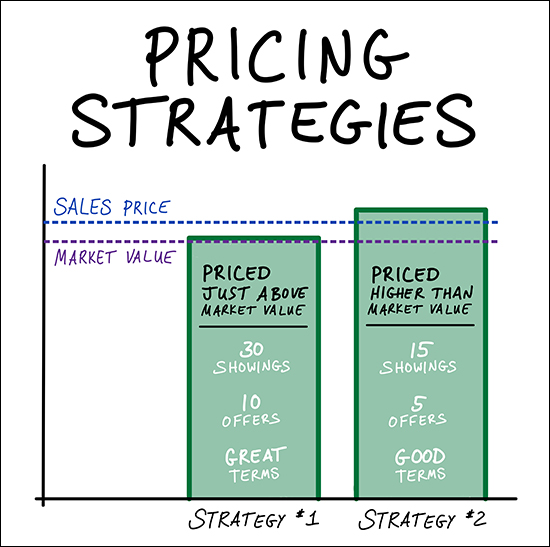 Above I have included an overly complicated illustration of an overly simplified comparison of two pricing strategies. A few key points for understanding the graphic above...
So... the two strategies... STRATEGY #1 In this scenario, the seller decides to price their home just barely above market value. If most would agree that a house is worth $315K, then maybe that is pricing it at $319K. Pricing a home so close to (but just above) what you believe to be its market value is likely to (in this market, now) generate a LOT of showings. A fairly priced house in a market with extraordinarily low inventory levels results in a lot of early showing activity. Houses listed for sale with prices very close to their market value also typically see quite a few offers, which leads to the most important differentiation between these two pricing strategies... With so many offers, you are bound to have a buyer or buyers who are willing to go above the asking price, maybe with an escalation clause, maybe with an escalation clause that goes up to a silly/high number, maybe without a home inspection contingency, maybe without an appraisal contingency, maybe cash, etc. You see where I'm going here. The more offers you have, the more likely you are to have an offer (amongst the many) with terms that will be very favorable to you. STRATEGY #2 In this scenario, the seller decides to price the house a good bit above the assumed market value, you know, because the market is strong! If most would agree that a house is worth $315K, then maybe that is pricing it at $329 or $335K. Even if most buyers (and buyer agents) suspect the price is a bit too high, you are likely still to have a good number of showings, though definitely not as many as if you had priced the home closer to its market value. Of the smaller group of buyers who looked at the home, you are likely to have a smaller number who make an offer. You'll have fewer offers because the price is not quite as realistic, and because some buyers will assume you won't come down much on your price since you just listed your home, which leads to that key difference again... Having priced your home a good bit above its market value, you are less likely to have full price offers, less likely to have escalation clauses, less likely to have buyers waive an inspection contingency or appraisal, etc. You will likely still have very good terms as far as price, but not great terms. Again -- this is an oversimplification of how to best price your home -- and every house and segment of the market is different -- but at some point you will need to decide what type of a strategy you will take in pricing your home, as to what results you are hoping to see. | |
Not Much Negotiability In Home Prices In 2020 |
|
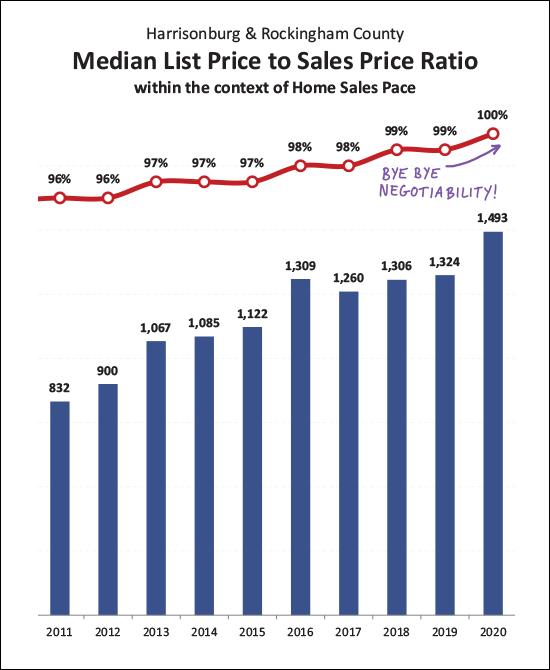 Looking back at a full year of data now for 2020, it is impressive to note that the median "list price to sales price ratio" was 100% for the year. This means that at least half of sellers sold at or above their list price! Home buyers likely aren't surprised by this revelation as they have experienced it first hand if they bought - or tried to buy - in 2020. New listings that are prepared well, priced well and marketed well are receiving multiple offers within days of hitting the market. Oftentimes, buyers are not discussing whether to make a full price offer - they are discussing how far above list price to go with their offer. Home sellers must still remember that this is not a blank check. Just because buyers are so eager to buy that they are often going above list price does not mean that you can list your home for any price you'd like. If your home is potentially worth $300K in the market right now, you ought not list it for $350K and then be surprised when you don't have a rush or showings and don't have any offers. You still need to price your home based on recent sales, though you might be able to round up a bit more than you had in the past when pricing your home. I expect this dynamic (most homes selling for the list price or higher) to continue as we move through 2021. | |
It Is Hard For Home Buyers To Compete If They Have A Small Downpayment Or If They Need Closing Cost Assistance |
|
 A few short years ago...
These days...
A few short years ago...
These days...
So, it's not that you can't buy a home with a small down payment or if you need a closing cost credit -- but it will be a lot harder to do so these days, largely because of other competing buyers who have a larger down payment and/or who do not need a closing cost credit. | |
How High Will You Go When Competing With Other Buyers? |
|
 Over the past month I have represented multiple buyers who have made offers on homes where they were competing against anywhere from three to seven other buyers. Given that our market is so high competitive in many locations and price ranges, buyers find themselves facing all sorts of difficulty questions...
The list could go on and on. It's a tough time to be a buyer right now and just because you find a house that you like, and you want to buy, and that you are qualified to buy, and even if you have a lender letter, and even if you see the house on Day 1 and make an offer on Day 1 -- you still might not get the house. There might be someone else who is willing to pay more than you or take more risks than you are, or who has a larger down payment than you have. So, be ready to act fast, and make a strong offer - and be ready to carefully calculate how high you are willing to go on price - but know that you still might not get the house despite your best efforts. | |
Three Ways To Make A Contingent Offer |
|
 If you have to sell your current home in order to buy a new home - there are (at least) three ways to do that...
If you're making an offer on a new-ish listing then Option 1 and Option 2 are not likely to be successful strategies to securing a contract on the house you want to buy. The best bet is to wait until you have your house listed for sale AND under contract - Option 3 - because at that point your have positioned yourself (and your home sale contingency) as best as you possibly can from the seller's perspective. A few additional, related, notes...
Selling and buying simultaneously can be tricky, complicated and frustrating -- but it is possible! Feel free to be in touch if you want to talk through the options outlined above as they pertain to your situation. | |
Think Twice Before Ignoring That Low Offer On Your Home |
|
 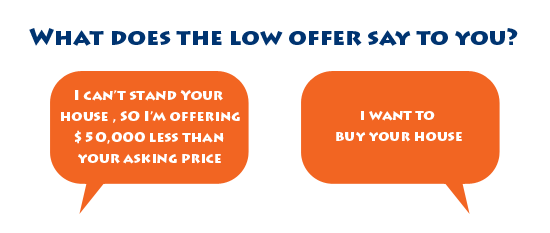 If you have not yet had an offer on your house (that is listed at $300K) and you receive an offer of $250K, that doesn't necessarily mean your house is only worth $250K, nor does it necessarily mean that you should accept $250K or something close to it. It does, however, mean something quite exciting --- somebody wants to buy your house!!! Of course, negotiations won't always work out with low offers -- but recognize a low offer for what it is -- a buyer who wants to buy your house, and perhaps the first buyer who has declared as much through a written offer! If there is any way to put a deal together with those buyers, you ought to pursue it, as it's hard to know when the next buyer will work up the courage to tell you that they want to buy your house! | |
Sometimes Buyers React Irrationally To Home Inspections |
|
 The purpose of a home inspection contingency is to allow a buyer to learn more about the property they have contracted to purchase -- and then to request repairs to the property if they discover new issues of which they were unaware when they contracted to purchase the property. For example -- a buyer contracts to buy a home for $250K and believes the electrical wiring and plumbing are all in good condition. The home inspection takes place and the inspector discovers that there are four plumbing connections that are leaking in the unfinished basement. It is then reasonable for the buyer to ask the seller to repair these plumbing leaks prior to closing. They agreed to pay $250K for a house that they did not believe had plumbing leaks -- and thus they request the seller restore the house to being a leak-free house. This is certainly an oversimplification of the matter, as there are often many discoveries during a home inspection -- of varying levels of seriousness or complexity -- but stick with me for now. Back up at our prior example -- rarely would a seller be disappointed, surprised, or unhappy if a buyer asked for plumbing leaks to be repaired. But what is a seller to do when a buyer starts to behave irrationally -- in a way that the seller believes no other buyer would certainly ever respond? For example --
I could go on and on. The point is -- sometimes buyers behave irrationally -- for whatever reason they have decided that they cannot / will not buy the house, and they are going to dig in their feet and make irrational repair requests until the seller finally caves and releases them from the contract. Or, rather, given the standard Virginia home inspection contingency, the buyer just terminates the contract on the basis of the home inspection even though their decision to do so was based on a view of the property condition (and of needed repairs) that is unlikely to be shared by any other buyer, ever. So, what in the world is a home seller to do in such a situation?
Of course, I hope this advice is absolutely never pertinent to you. May you never be in the midst of a home sale -- under contract -- just working your way through contingencies and excitedly anticipating a closing in the near future -- and then have the rug pulled out from under you by a home buyer with unreasonable expectations or demands. But if you do find yourself in this situation, try to move on quickly and be transparent with future buyers -- after getting angry, frustrated and discouraged, of course! | |
How Far Can You Or Should You Round Up The List Price For Your Home? |
|
 Sometimes it is tempting for a seller to want to round up their list price. The seller says (or thinks)... "We think the house is worth $240K? And you're saying we should list it for $245K or $249K? I'm optimistic -- I think someone is going to be willing to pay $250K, so let's list it for $260K! A buyer can always make an offer!" That's all well and fine and good -- and somewhat logical -- unless every buyer that comes to see the house in the first three weeks really thinks it is worth $240K. Then, when leaving the house priced at $260K, if they are willing to pay $240K, they are likely thinking they'd need to offer $220K in order to negotiate you down to the value of $240K. And they almost certainly won't make the offer. If a house priced at $260K has been on the market for a few days, most buyers aren't going to make an offer of $220K. They might think it is a waste of their time. They might not want to insult the seller. Regardless of the reason, you are not likely to have $220K offers on a $260K listing within the first few weeks. Thus, the buyer who excitedly came to see your $260K house, and then concluded that it is probably worth $240K (where we started this conversation) is likely to conclude that they should just wait a month or so and see if you eventually reduce the price to $250K -- and then they might consider an offer. But by the time you reduce the price to $250K, you are bound to get significantly less buyer/market attention with that price reduction since it is no longer a new listing. And some of the originally interested buyers will have found something else to buy. And there will be much less urgency for any buyer to make a decision about an offer. | |
Buyers Seem To More Frequently Be Willing To Pay Above Appraised Value For Houses |
|
 In today's local housing market we're seeing...
This disconnect (buyers being willing to pay more than appraised value) is likely because of how appraisals are defined and conducted. An appraisal is an indication of the value of a property based on what other buyers have paid for other similar houses in the recent past - often the last six months. What we now seem to be seeing is that today's buyers are willing to pay more for houses than buyers paid zero to six months ago - which can cause an appraisal to come in lower than the price that the buyer had agreed to pay for the house. So, when there is a low appraisal, where do things go from there? It's different in every transaction and it's all negotiable.
If the appraisal on your house comes in low...
Current conditions in your segment of the local housing market will likely ultimately dictate what a buyer and seller will agree to do with a low appraisal. | |
Sellers Consider More Than Just Price, So Your Escalation Clause May Need To Be Tweaked Accordingly |
|
 If you are trying to buy a home in a price range (under $250K) where there are often (usually?) multiple offers on the table, you may find yourself considering the use of an escalation clause. What is an escalation clause, you might ask? An escalation clause allows you to offer one price but then to effectively increase your offer price to be above any other competing offers. Consider the following scenario on a house listed for $225,000
Offer 2 wins, right? Probably so. But if the first buyer didn't want to pay more than the asking price if they didn't have to -- but if they would have been willing to pay up to $230,000 -- then things could have worked out differently...
In this situation, Offer 1 becomes an offer of $228,000 and likely is the chosen buyer instead of Offer 2 which is then $1,000 lower. But let's add a layer here -- the financing contingencies...
I see this type of scenario play out quite regularly. In many cases, the seller is will choose to move forward with Offer 2 - even though it is $1,000 less than Offer 1. Why, you might ask? Buyer 2 seems to be better qualified to buy the home, with a larger down payment. This will likely be to the seller's advantage when it comes time to negotiate the home inspection (a buyer with more cash available is less likely to be worried about small repair items) and the appraisal (a buyer with more cash available is likely more willing/able to come up with an extra $1K if the appraisal is slightly low). So, if a buyer has some other terms (financing, inspection, timing, etc.) that are possibly or likely to be less favorable to the seller, said buyer might consider leveraging their escalation clause a bit, such as the following...
In this scenario, Offer 1 becomes an offer of $229,500 compared to Offer 2 which is an offer of $227,000. This will cause the seller to think a bit longer and harder about whether they really want to go with Offer 2 that has the more favorable financing contingency. Think strategically when you are crafting your offer -- and your escalation clause -- knowing that a seller is looking at all of the terms of your offer, not just the offer price. | |
How Often Do Home Sellers Provide A Closing Cost Credit? |
|
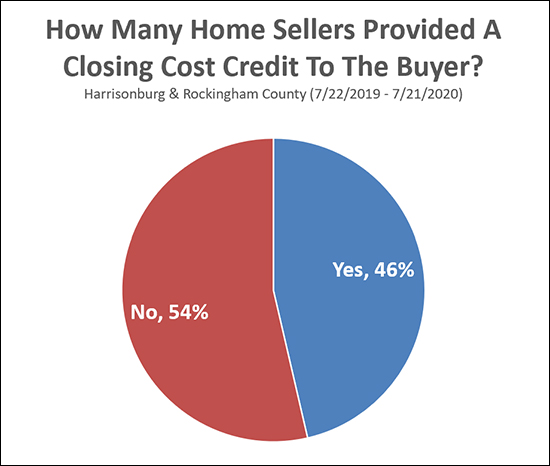 Looking back over the past year it seems that slightly fewer than half (46%) of home sellers provided a closing cost credit to the buyer for their home. It is not altogether surprising that many buyers ask for a seller paid closing cost credit. With interest rates so low, it is not a crazy idea to incorporate some of your closing costs into the mortgage by increasing the purchase price and mortgage amount by a few thousand dollars. Here, then, is how much sellers paid in buyer closing costs over the past year in the 46% of the cases where the seller did provide such a credit... 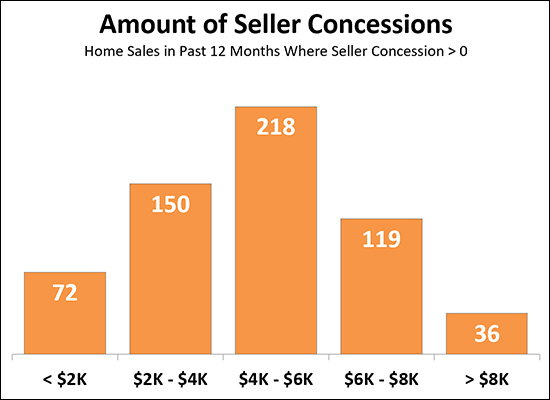 So, if, as a seller, you are paying part of a buyer's closing costs, you are most likely to be paying between $4K and $6K --- or between $2K and $4K. And again, as a seller, if you pay part of the buyer's closing costs -- you are not alone -- 46% or so of sellers do so! | |
More Than Half Of Homes Are Selling For More Than Their List Price |
|
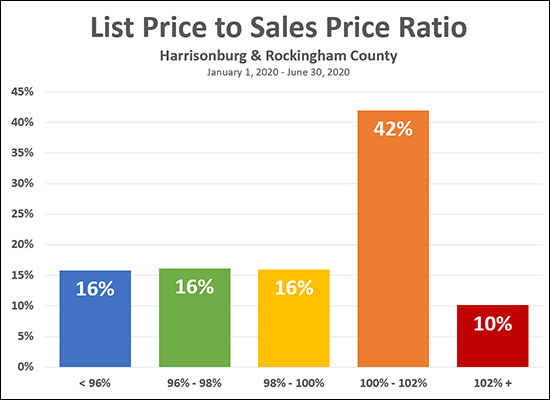 This might surprise you. It surprised me! More than half (52%) of homes that sold in the first half of 2020 sold for MORE than their list price! It is certainly true that we have seen buyers being able to negotiate less and less over the past few years as the market has become tighter in many price ranges and locations -- and this is some specific evidence that now many buyers aren't able to negotiate at all! Plenty of caveats, of course...
Anyhow, regardless of how you slice the data, the market is hot in many price ranges and buyers are often finding themselves needing to be prepared to pay the full list price or even a bit higher to secure a contract on a home! | |
Sometimes A Full Price Offer Just Is Not Enough! |
|
 It has happened to several of my clients lately -- we have made a full price offer with reasonable contingencies (home inspection, radon test, appraisal, financing) and we have lost out on the house. What does it, or might it, mean?
So, unfortunately, on a well priced new listing in a competitive price range -- seeing the house on the day it is listed and making a full price offer that same day won't necessarily mean you will be buying the house. As such, it's a great time to be a seller. It's not necessarily as exciting to be a buyer right now. | |
Are Home Sellers Accepting Offers Contingent On The Sale Of Homes Not Yet Under Contract? |
|
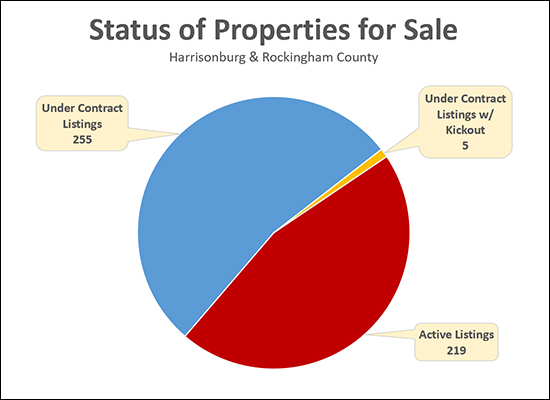 Based on the analysis above, it would seem that sellers are not (in almost all cases) accepting home sale contingencies unless the home that must be sold is already under contract. Here's the logic....
It would seem that most buyers are likely waiting to make offers until they have their own properties under contract (thus eliminating the need for the kickout clause) AND/OR most sellers are not accepting offers with home sale contingencies unless the buyer's house is already under contract (thus eliminating the need for the kickout clause). If you are a buyer, I would certainly suggest the strategy outlined above (and the only one that is apparently working with sellers right now) --- get a contract on your house and THEN make an offer on the property you would like to purchase! | |
How Do Home Inspection Negotiations Usually Proceed? |
|
 A buyer agrees to pay a price for a house based on what they know about the house at that time. The home inspection process allows them to learn more about the house to confirm that it is the house that they thought. But sometimes, they discover problems with the house that they'd like the seller to address....
So, how do these home inspection negotiations usually proceed? The short (and vague) answer is -- well, it depends on the terms of your contract. But, overall, here is how the inspection process typically flows.... 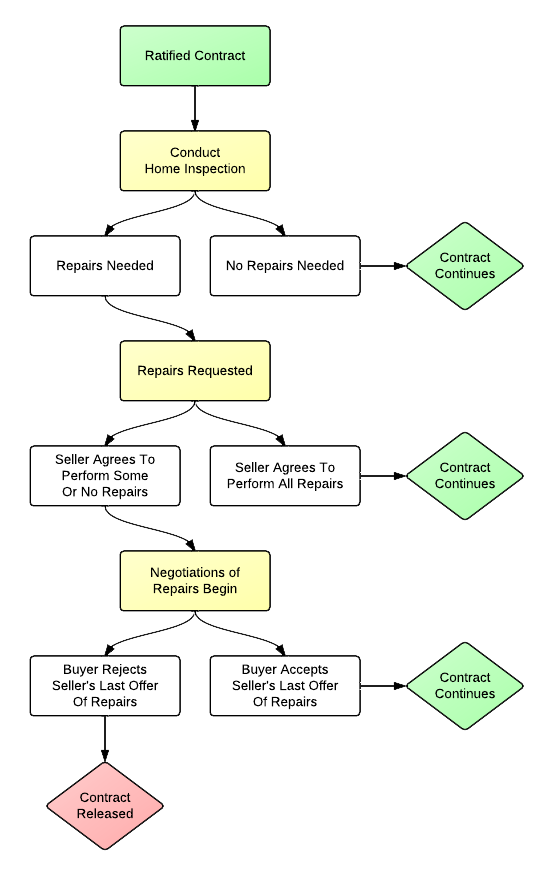 As you can see above, after a buyer requests repairs (based on the home inspection) the seller can choose to make some, all or none of the requested repairs. The transaction (and negotiations) can then go in a few different directions based on that response. Learn more about the home buying process at....  | |
Focus On The Big Items When Drafting A Repairs Request |
|
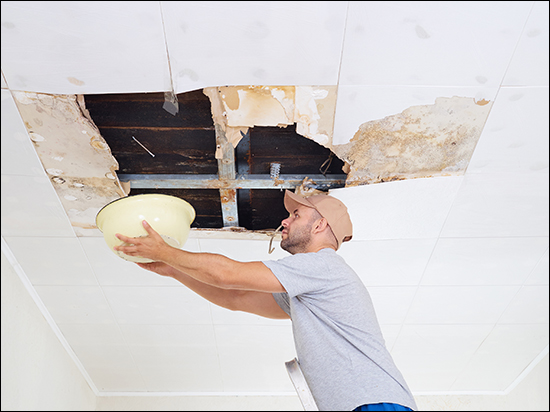 After a home inspection, a buyer knows more about the house than when they agreed to pay $X to purchase the house. In order for them to still want to pay $X for the house, they may ask the seller to address some of the deficiencies found during the home inspection. Imagine a hypothetical scenario where the following deficiencies are found:
So - which items should the buyer ask the seller to repair? Some could say ALL of them - the buyer didn't agree to pay $X for the house with all of these large and small issues. But I'd advise most buyers to only request that the seller address a subset of those issues:
All of the other items (3-7) are minor issues that won't cost too much (in time or money) to repair after you buy the house. But why not ask the seller to repair these items?
| |
Tips For Townhouse Buyers In A Competitive Market |
|
 Over the past few months I have listed several townhouses for sale that went under contract quickly after a LOT of showings in a very short timeframe. For one such recent property there were six offers within 48 hours. One of the things that struck me as we worked through that process was that there were five other buyers who really (!!) wanted to buy that townhouse and couldn't -- because there was only one townhouse to be purchased. As such, I feel bad for townhouse buyers in the current market. Townhouse buyers have a LOT of competition and I can imagine a single buyer making an offer on multiple townhouses and missing out every time. So, a few tips for would be townhome buyers...
I suppose one critical aspect that I did not list above would be to hire a buyer's agent to represent you in finding, pursuing and purchasing your townhome. I'd suggest you select someone who is highly responsive, professional and knowledgeable about the market. Happy townhouse shopping! (Or may it just not be too unbearably difficult, frustrating and tiring.) | |
| Newer Posts | Older Posts |
Scott Rogers
Funkhouser Real
Estate Group
540-578-0102
scott@funkhousergroup.com
Licensed in the
Commonwealth of Virginia
Home Search
Housing Market Report
Harrisonburg Townhouses
Walk Through This Home
Investment Properties
Harrisonburg Foreclosures
Property Transfers
New Listings

